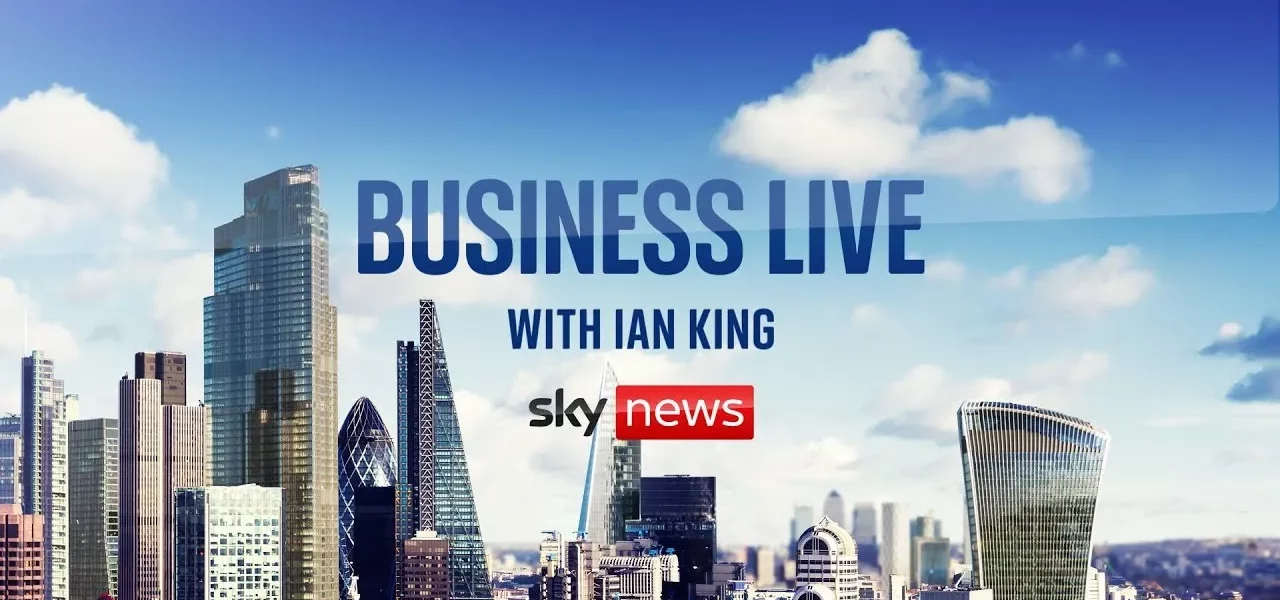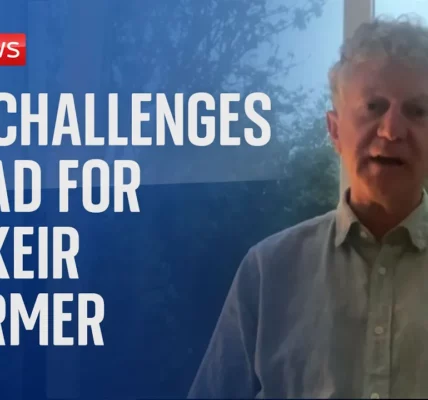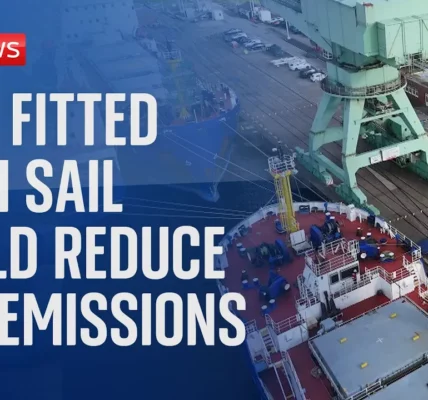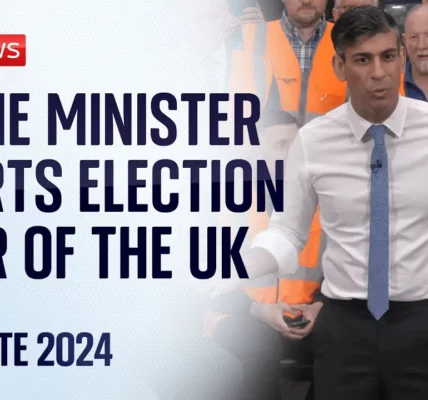The State of the UK Economy: Insights from Grimsby

This article explores the latest developments in the UK economy, particularly the drop in inflation rates, the implications for businesses, and the political backdrop as the general election looms. Join us as we delve into the conversations happening in Grimsby, a key target town during this election campaign.
Introduction
On a significant day for the UK economy, inflation has been reported to have fallen to 2%, aligning with the Bank of England’s target. This milestone comes after a tumultuous period marked by a historic cost of living crisis and economic challenges exacerbated by the COVID-19 pandemic. As business leaders gather in Grimsby to discuss the implications of these changes, various perspectives on the economy’s current state and future trajectory emerge. This article will analyze these insights and the broader economic context leading up to the upcoming general election.
Current Economic Climate
The recent decline in inflation rates signifies a turning point for the UK economy. However, the journey to reach this point has been fraught with challenges. Inflation peaked at 11.1% in October 2022, reflecting the strains on households and businesses alike. The latest figures indicate a decline in the headline rate of inflation to 2% in May, down from 2.3% in April, primarily driven by slower food price increases.
Impact on Consumers and Businesses
Despite the positive news regarding inflation, many consumers are still feeling the pinch. The following points highlight the ongoing challenges:
- Food prices remain 20% higher than they were three years ago.
- Services inflation continues to sit at 5.7%, indicating that many costs are still rising.
- Small businesses are grappling with increased operational costs, including energy and labor.
As the Chancellor celebrates this decrease, the reality on the ground tells a different story, with many individuals and families still struggling to make ends meet.
The Political Landscape Ahead of the Election
The approaching general election adds a layer of complexity to the economic discourse. Political parties are using the state of the economy to frame their narratives. The Conservative government touts the reduction in inflation as evidence of their effective management, while the Labour party argues that ordinary citizens are still worse off under Conservative rule.
Voter Sentiment in Grimsby
Grimsby, a traditional Labour stronghold turned Conservative seat in 2019, is critical in this election. The following factors are influencing voter sentiment:
- Historical voting patterns: Grimsby has a long history of voting Labour until 2019.
- Current polls suggest Labour could regain control, highlighting shifting political dynamics.
- The impact of local economic conditions, including business closures and unemployment rates.
As conversations around the local economy unfold, themes of resilience and determination among Grimsby’s residents emerge, signaling potential shifts in voter allegiance.
Business Perspectives on Inflation and Economic Recovery
Local businesses are at the forefront of navigating this economic landscape. Leaders from various industries are expressing their views on inflation and its implications for growth and sustainability.
Case Study: My Energy
My Energy, an innovative company based in Grimsby, is leading the charge in renewable energy solutions. Co-founder Jordan Brompton shared insights on the challenges and successes of running a business in the current climate:
- Access to capital remains a concern for startups, requiring personal investments and innovative financing strategies.
- Market demand is shifting, requiring businesses to adapt quickly to changing consumer behaviors.
- Employment challenges persist, particularly in specialized fields like firmware development.
Despite these challenges, Brompton remains optimistic about the future, emphasizing the need for consistency in government policy to foster business growth.
The Role of Renewable Energy in Economic Recovery
Grimsby’s economy is transitioning from its historical reliance on fishing to a focus on renewable energy. The Hornsea project, for instance, is set to become the world’s largest offshore wind farm, with significant investments being made in the region.
Investment and Job Creation
Investments in renewable energy are not only pivotal for environmental sustainability but also for job creation. Key points include:
- Over 600 jobs have been created in Grimsby through companies like Ørsted.
- Apprenticeship programs are in place to build a skilled workforce in the energy sector.
- The potential for Grimsby to become a hub for renewable energy innovation is significant.
As these projects unfold, the local economy may see revitalization, attracting further investment and talent to the area.
Conclusion
The fall in inflation rates to 2% is a pivotal moment for the UK economy, yet it is essential to recognize the broader context of ongoing challenges faced by consumers and businesses. As the general election approaches, the interplay between economic performance and political narratives will shape the future landscape. Grimsby stands as a microcosm of these dynamics, showcasing resilience and the potential for renewal. To stay updated on these developments, we encourage readers to explore our related articles and engage in discussions about the economic future of the UK.
“`




